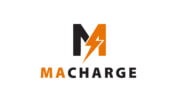
With the rise of electric vehicles (EVs) in recent years, more and more homeowners and businesses are considering installing an EV charging station. Installing an EV Charger can be an important decision and how you’re going to charge. This is especially the case if it’s a business decision or return on investments need to be considered. For many these days, installing that electric vehicle (EV) charger at home or workplace is their step in the transition to the electric vehicle world. However, it’s not as simple as just plugging it in. There are several factors to consider.
1. The Location of the EV Charger
The first thing to consider is the location of the EV charger itself. On this day, MaCharge is working with a customer on this very topic. The least expensive installation would be just below a pine tree. But who wants sap and pine needles all over their $90,000 vehicle. If you’re installing a charger at home, consider where you park your vehicle and where your electrical panel is located. Depending on whether you’re installing a charger at home or at a commercial property, you may need to consider factors such as:
The proximity to the EV parking space
The distance from the power source
The impact on landscaping or other outdoor features
The level of accessibility and visibility
2. The Electrical Capacity
When it comes to installing an EV charger, a second important factor to consider is the electrical capacity of your home or commercial building. The electrical capacity is the amount of power that is safely supplied to your property.
Most EV chargers require a 240-volt circuit. It compares to type of circuit used for large home appliances like an electric oven or dryer. In most cases, EV chargers require much more power than these appliances. It’s crucial to ensure that your property’s electrical system can handle the increased demand.
To determine if your electrical capacity is sufficient for an EV charger installation, you’ll need to have an electrician conduct a load calculation. This involves assessing the electrical capacity of your home or building, as well as any other devices or appliances that are currently drawing power. Based on this assessment, the electrician can determine whether your electrical system can support an EV charger installation, or whether any upgrades or modifications will be needed.
Upgrading your electrical system to accommodate an EV charger can be a significant investment, but it’s crucial to ensure that your system is up to the task. Failure to properly assess your electrical capacity can lead to electrical hazards such as circuit overloading, which can result in fires and other safety hazards. Therefore, it’s important to consult with an experienced electrician to assess your property’s electrical capacity and make any necessary upgrades to ensure a safe and reliable charging setup.
3. The Type of EV Charger
More often than not, the most basic questions will help you determine your charging needs.
How often do you drive your electric vehicle? How far do you typically travel? These two simple questions will help you determine how much charging capacity you need. They can possibly help you save some money as well. Some chargers offer additional features, such as the ability to track usage and manage billing, while others may have higher charging speeds. Your electrician or EV installation company can help you choose the right charger based on your specific needs.
Based on your charging needs, you will be going for one of these three types of chargers. There are three main types: Level 1, Level 2, and DC fast charging.
Level 1 chargers are the most basic type and can be plugged into a standard 120V outlet. However, they are the slowest charging option and can take up to 20 hours to fully charge an EV.
Level 2 chargers, on the other hand, require a 240V outlet and are significantly faster than Level 1 chargers. They can charge an EV in around 4-8 hours.
DC fast charging is the fastest option, but it requires special equipment and can be quite expensive. DC fast chargers can charge an EV to 80% capacity in around 30 minutes.
4. The Future Expansion and Scalability
Finally, it’s important to consider future expansion and scalability when installing an EV charger. If you plan to add more EVs to your fleet or expand your business, you’ll need to ensure that your charging infrastructure can handle the additional load. It’s a good idea to consult with a qualified electrician to ensure that your charging infrastructure is scalable and can accommodate future growth.
Installing an EV charger can be a great investment if you are a business or bring a lot of convenience. But it’s important to consider the factors discussed in this article before proceeding with the installation. By choosing the right type of charger, considering the location and electrical capacity, researching warranty and support options, ensuring safety and code compliance, and considering future expansion and scalability, you can ensure a successful and hassle-free installation. when installing an EV charger, it’s crucial to hire a licensed electrician or EV installation company. They have the expertise and knowledge needed to ensure that the installation is done correctly and safely.
